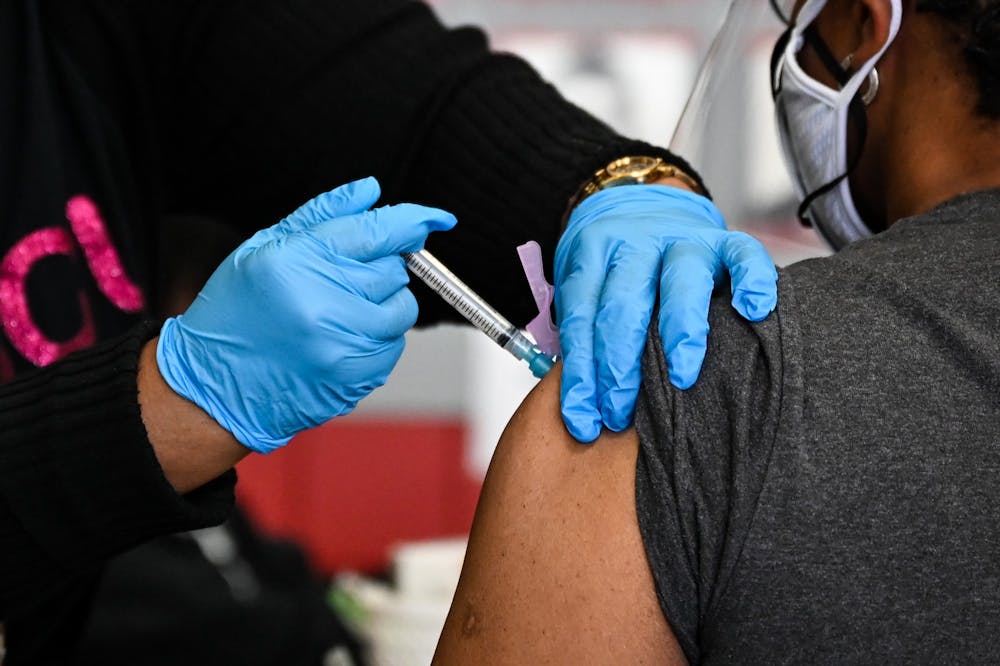
A few weeks ago, Provost Wendell Pritchett stated at the Board of Trustees meeting that there is a "50-50 chance" Penn could begin vaccinating students before the end of the spring semester. The recent promise by President Biden that the United States would have enough vaccines for all adults by the end of May likely confirms this, and may even speed up the timeline.
However, there still remains much unknown about this vaccination campaign, such as the exact date of its inception, the order in which students can access the vaccine, and what type of vaccine students will be receiving. Two things are clear, however; this vaccination campaign must not come at the expense of West Philadelphians, and, if at all possible, Penn must give West Philadelphians equal access to vaccines.
Although over 320,000 Philadelphians have received at least one dose of a COVID-19 vaccine, the distribution of vaccination has not been equitable. The 19104 zip code, which includes both the University and surrounding areas, has a vaccination rate less than half that of some Center City areas. Furthermore, because a substantial proportion of West Philadelphians fall below the poverty line, they may not have access to the same treatment as Penn students if they get infected prior to vaccination.
It is for those reasons that any vaccination campaign run by the University must consider West Philadelphians. While the timeline and exact process of vaccine distribution remains uncertain, it would be socially irresponsible for Penn to let its students without comorbidities receive the vaccine while denying disadvantaged residents in the surrounding areas the same. The only way to prevent this scenario from happening is to ensure that Penn vaccinations, or at least vaccination clinics operated by Penn, remain available to ordinary West Philadelphians throughout the vaccination campaign.
Realistically, there are several possible steps the University can take to ensure the safety of the West Philadelphian community. First, the University must abide by city rules with regards to the vaccine, avoiding earlier mistakes by The Perelman School of Medicine and making sure students get vaccines when it is their turn, rather than before. More importantly, the University must also maintain existing community vaccination infrastructure, such as sites at Penn Medicine, and expand upon said infrastructure to accommodate the increasing number of West Philadelphians who will be eligible to receive a vaccine.
Penn must also give leftover vaccines to local residents. Given the temperature requirements for safe vaccination storage, the Pfizer and Moderna shots can expire if not distributed timely, wasting vaccines. Setting up a website or app, as some have already done, to notify West Philadelphians of leftover vaccines would not only help the University give back to the community, but would also ensure that no vaccine goes to waste. The University can still give leftover vaccines to students who haven't yet signed up; but they should offer them to walk-ins indiscriminately.
For decades, the University of Pennsylvania and West Philadelphia have had a complicated and tension-filled relationship. Although vaccinating West Philadelphians won't completely repair this relationship, it will go a long way in both protecting local residents and restoring the University's image.
Editorials represent the majority view of members of The Daily Pennsylvanian, Inc. Editorial Board, which meets regularly to discuss issues relevant to Penn's campus. Participants in these meetings are not involved in the reporting of articles on related topics.
The Daily Pennsylvanian is an independent, student-run newspaper. Please consider making a donation to support the coverage that shapes the University. Your generosity ensures a future of strong journalism at Penn.
Donate






